How Do I Utilize Compost For My Garden
Making compost is a great way for gardeners and environmentally conscious homeowners to cut down on waste, all whilst boosting the nutrient intake of plants, and here we're going to show you how with with our expert guide on how to make compost. Create a purposeful, nutrient-rich compost heap in your garden with these simple steps...
How to make compost
What is composting?
Garden clippings and kitchen peelings contain nutrients that can be used by plants. However, they have to be well rotted before plants can absorb their nutrients; gathering them in a pile helps them break down more quickly. Composting is this speeding up of the rotting process.
Plants and foodstuffs are broken down by worms, bugs and bacteria. For these bacteria to survive they need water and air. If there's no room for air, they can't do their work. This is also the case if there's no water, so you may need to water your compost heap if it gets dry.
As the bacteria get to work, the compost heap becomes hotter and this in turn helps the bacteria to work more quickly.
Where do I put the compost heap?
You don't need a container to make compost but it's helpful to keep compost neat in a bin, which will also retain the heat. There are lots of compost bins around but one with a removable side will make it easier to turn the compost and then get it out when it's ready.
As you want worms and bugs to get in, put the compost heap on soil rather than paving or concrete so they can go in through the bottom. If you have to put it on a hard surface, add a spadeful of soil at the bottom to introduce some creatures.
Compost heaps shouldn't be smelly, so if yours is it's probably not getting enough air and the bad bacteria has taken over. Even so, it's best not to place it next to where you sit in the garden.
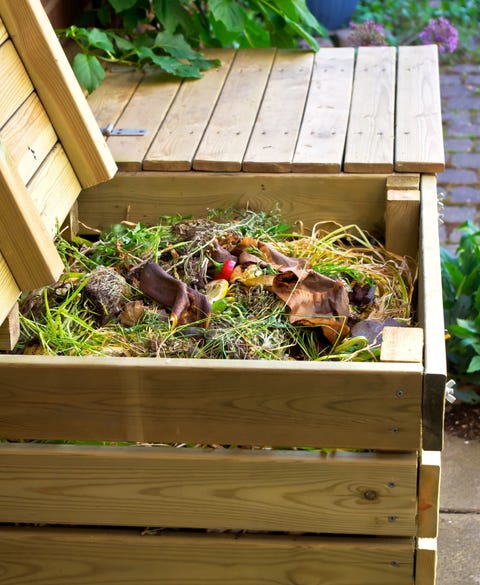
Ann Louise Hagevi Getty Images
How to make a compost heap
To make a compost heap, include anything that contains nutrients. Avoid meat; it needs higher temperatures to break down and a garden-sized heap may never get hot enough. Also, meat is thought to attract rats and foxes.
A good mixture is key. You need solid things, like twigs, to bulk up your compost and let air in, and squishy things, like green leaves and grass, to get the bacterial process underway. Too much solid and it will never break down, too much squishy and the smelly bacteria will take over and you'll end up with silage. No more than half should be soft green things such as grass or green leaves.
How to compost
It should take about six months to a year until you get brown, crumbly compost. Turn it once a month with a garden fork to make sure air is getting to the bacteria. More often, and the temperature won't have a chance to build up. Water the heap if it looks dried out.
How to use compost
Compost is a soil improver and provides nutrients to plants' roots. You can put a layer on top of the soil and it will leach down gradually into the deeper layers, or you can dig it into the earth around the plants' roots.
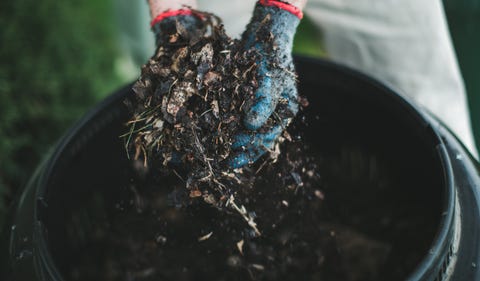
Annie Otzen Getty Images
What to put in a compost bin
These can go in: Twigs; shredded paper (not shiny paper); small pieces of cardboard. Cotton and wool fabrics. Uncooked veg trimmings; tea bags. Annual weeds; tops of perennial weeds. Old bedding plants. Dead leaves. Soft hedge and lawn clippings.
These can't: Big bits of woody material; cut up or shred first. Synthetic fabrics. Meat or bones. Perennial weed roots (even tiny bits of roots like bindweed may survive and infest your garden). Soil pests such as weevils or wire worms. Diseased plant material. Dog or cat waste.

brebca Getty Images
How to make compost troubleshooting
• Problem: After a year, some of the compost is dark brown and crumbly, while in other places it hasn't rotted down at all.
Solution: Take the good compost out and use it; leave the rest to continue breaking down.
• Problem: Slimy/smelly compost.
Solution: This indicates too much water and not enough air. Introduce more woody material if you can, including paper and cardboard, to allow more air in and make sure the heap is protected from rainwater.
• Problem: Compost not rotting down.
Solution: You can buy commercial accelerants but if you add more green waste and make sure there's water, it should start to break down on its own.
Follow House Beautiful on Instagram.
16 great books for gardening and indoor plant inspiration
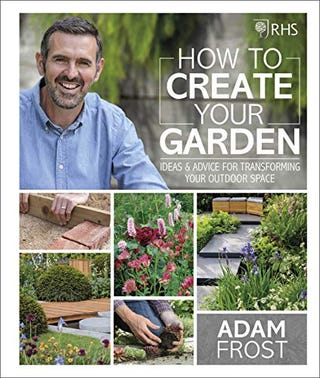
Garden book
RHS How to Create your Garden: Ideas and Advice for Transforming your Outdoor Space
Adam Frost's practical, no-nonsense approach will help you plan and build a garden that works for you. The Gardeners' World presenter takes you step by step through the whole process, from simple garden design ideas to a full garden makeover.
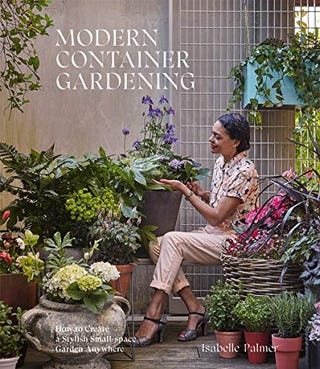
Garden book
Modern Container Gardening: How to Create a Stylish Small-Space Garden Anywhere
Isabelle Palmer shows you how to make the most of every little space with a series of projects for small gardens, singular containers and window boxes, that can be completed in a day or weekend. Perfect for novice gardeners,Modern Container Gardening offers beautiful photography and clear step-by-step instructions.
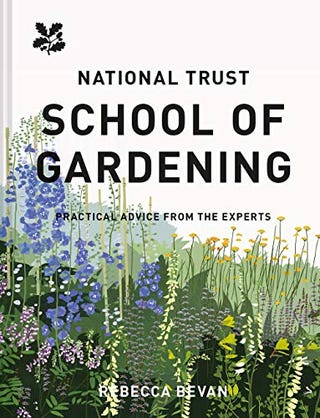
Garden book
National Trust School of Gardening: Practical Advice from the Experts
National Trust amazon.co.uk
£14.99
The National Trust employs over 500 gardeners with an extraordinary wealth of expertise. And now, in this in-depth guide, they pass on their wisdom and provide the answers any new and seasoned gardener is looking for. This book is intended to give you inspiration and confidence to make the most of your garden, without being overwhelmed with unnecessary technical detail.

Garden book
Veg in One Bed: How to Grow an Abundance of Food in One Raised Bed, Month by Month
Veg In One Bed explains how to build your bed and grow from seed, as well advice on planting, feeding, and harvesting. YouTube gardening star Huw Richards shows how to guarantee early success by starting off young plants on a windowsill and suggests what to grow in each part of the bed.
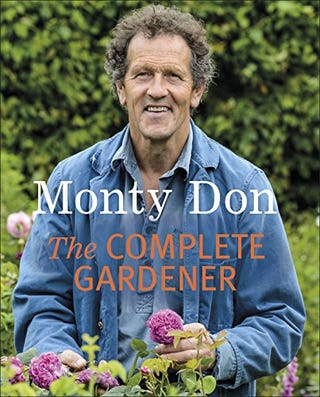
Garden book
The Complete Gardener: A Practical, Imaginative Guide to Every Aspect of Gardening
Monty Don offers straightforward gardening advice in this book, revealing the secrets of growing vegetables, fruits, flowers, and herbs, while respecting the needs of the environment by gardening organically. You can also enjoy a tour of his Herefordshire garden, including his flower garden, herb garden, kitchen garden, and more.
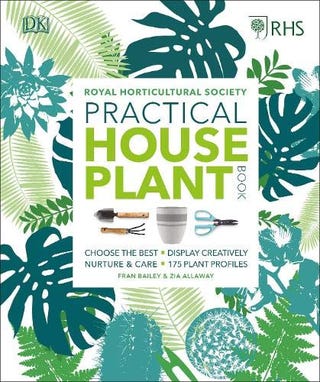
Plants book
RHS Practical House Plant Book
The Practical House Plant Book by the RHS contains a dozen step-by-step projects to help you assemble an eye-catching terrarium, create a floating kokedama 'string garden', or propagate succulents. Complete with 175 in-depth plant profiles, this is an essential practical guide for indoor gardeners.
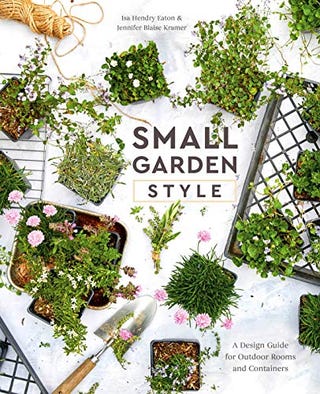
Garden book
Small Garden Style: A Design Guide for Outdoor Rooms and Containers
Ten Speed Press amazon.co.uk
£12.35
A small garden space – an urban patio, a tiny backyard, or even just a pot by your door – doesn't have to sacrifice style. InSmall Garden Style, garden designer Isa Hendry Eaton and lifestyle writer Jennifer Blaise Kramer show you how to use good design to create a joyful, elegant, and exciting yet compact outdoor living space.
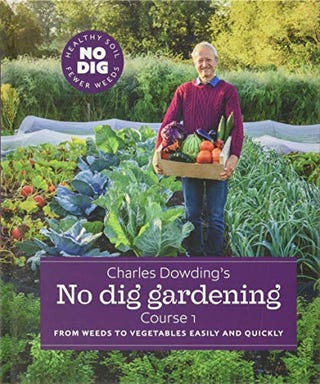
Garden book
Charles Dowding's No Dig Gardening: From Weeds to Vegetables Easily and Quickly: Course 1
No Dig Garden amazon.co.uk
£18.65
Charles Dowding, innovator of no dig, teaches you everything you need to know about this method of organic gardening. With 19 chapters, you'll learn how to use no dig on different soil types, recognise and massively reduce the different types of weeds, know the difference between soil and types of compost, and grow an abundance of vegetables using the no dig method.
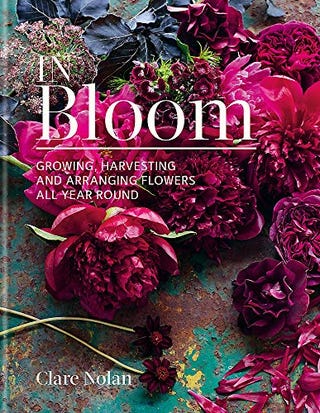
Plants book
In Bloom: Growing, harvesting and arranging flowers all year round
Kyle Books amazon.co.uk
£17.46
Get all the inspiration you need for planting cut flowers, and fill your home with colour and the gorgeous scent of the garden year-round withIn Bloom. Clare Nolan reveals her secrets for growing a bountiful harvest as well as styling spectacular homegrown displays in this beautifully designed book.
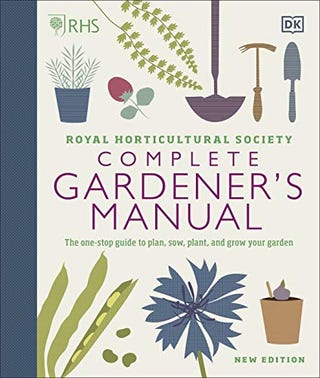
Garden book
RHS Complete Gardener's Manual
The RHS'Complete Gardener's Manual will help you choose plants that will thrive in your space, design a border for year-round colour, grasp different pruning techniques, discover how to protect your veg patch from pests, and make the best compost.
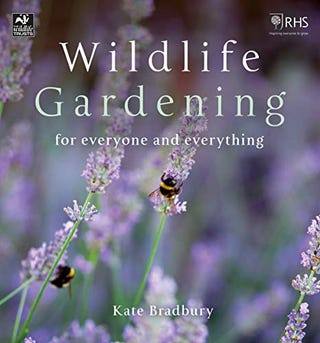
Garden book
Wildlife Gardening: For Everyone and Everything
Bloomsbury Wildlife amazon.co.uk
£10.19
Do you want to attract more bees, birds, frogs and hedgehogs into your garden? InWildlife Gardening for Everyone and Everything,Kate Bradbury teams up with the Wildlife Trusts and the RHS to help you discover how you can make your garden, balcony, doorstep or patio a haven for garden wildlife. You'll find handy charts, practical projects and fact files.
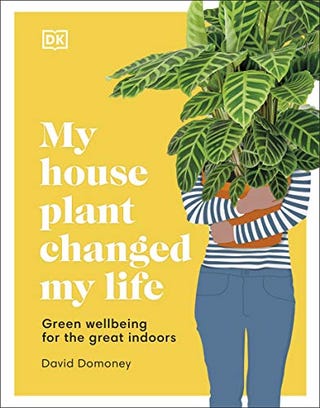
Plants book
My House Plant Changed My Life: Green wellbeing for the great indoors
Gardener and TV presenter David Domoney is a firm believer that indoor plants can make 'a practical and emotional contribution to our wellbeing'. In this book, David explains the hard science behind the positive effect of the humble houseplant on wellness, and provides expert tips on how to keep your plants thriving, plus shares his top 50 life-enhancing houseplants.
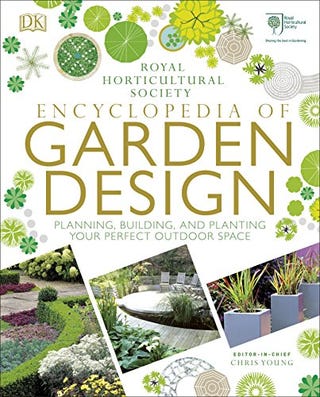
Garden book
RHS Encyclopedia of Garden Design: Planning, Building and Planting Your Perfect Outdoor Space
If you're looking for new garden ideas, theRHS Encyclopedia of Garden Design will guide you from planning to planting, such as choosing the correct materials for your structures and assessing your drainage, to laying patios, making ponds, and planting perennials.
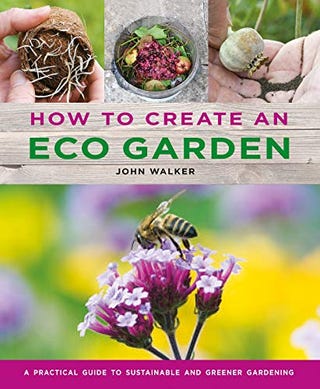
Garden book
How to Create an Eco Garden: The practical guide to sustainable and greener gardening
Lorenz Books amazon.co.uk
£11.29
This planet-friendly book is filled with ideas for creating your own eco garden on any scale, from a small courtyard to a large garden or allotment. Discover organic techniques that improve biodiversity, learn the value of using recycled and reclaimed materials for landscaping, and take on simple projects such as making a pond and a wildlife hotel.

Plants book
RHS Encyclopedia Of Plants and Flowers
Drawing on expert advice from the RHS, this best-selling reference book – organised by colour, size, and type, rather than as an A-Z directory – will help you select the right varieties for your outdoor space.
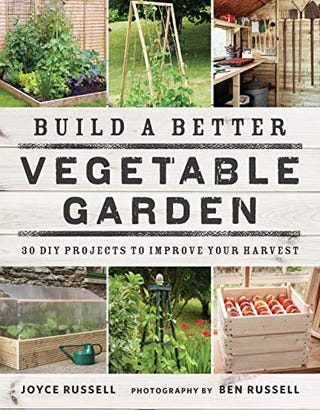
Garden book
Build a Better Vegetable Garden: 30 DIY Projects to Improve your Harvest
Frances Lincoln Publishers Ltd amazon.co.uk
£12.55
Joyce and Ben Russell have devised 30 kitchen garden projects, devised to either extend the season, protect crops from pests or improve yields. These projects transform your vegetable plot into somewhere more productive, more attractive and more secure.
This content is created and maintained by a third party, and imported onto this page to help users provide their email addresses. You may be able to find more information about this and similar content at piano.io
How Do I Utilize Compost For My Garden
Source: https://www.housebeautiful.com/uk/garden/a36171927/how-to-make-compost/
Posted by: bryantderstly.blogspot.com

0 Response to "How Do I Utilize Compost For My Garden"
Post a Comment